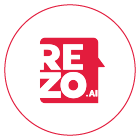
Speech Analytics Explained: Transforming Customer Conversations into Data

Speech Analytics Explained: Transforming Customer Conversations into Data


What is Speech Analytics?
Speech Analytics leverages speech recognition, natural language processing, and machine learning to convert customer conversations into text. This enables businesses to gain deeper insights into customer sentiment, preferences, and needs.
With real-time analysis of voice recordings, speech analytics tools provide instant feedback to contact center agents, enhancing customer understanding, improving agent performance, and boosting overall customer satisfaction.
Quick Read: Your Go-To AI Glossary: Simplifying the Complex World of Artificial Intelligence
How Does Speech Analytics Work?
Let's investigate the practical applications of speech analytics. To transform voice interactions into meaningful insights and improve customer experience and corporate operations, it employs a standardized three-step process.
- Processing: The first stage is using speech recognition technology to translate spoken words into text. Speech analytics systems record calls or collect actual conversations as customers interact with contact centers. The program accurately transcribes voice into text while recognizing tone, tempo, and pauses using natural language processing (NLP). The basis for a more thorough examination is provided by this raw data.
- Analyzing: The analysis starts as soon as the discussion is transformed to text. The software interprets the emotional tone, finds keywords, and finds patterns in the behavior of the users by using machine learning algorithms and sentiment analysis. It deconstructs the data to draw attention to key components, like intent, customer satisfaction, frustration, and product preferences. Pitch, stress, and silence can all be analyzed by powerful analytics techniques to give a complete picture of the conversation.
- Insights: Finally, the insights phase turns data into actionable recommendations. The analyzed data is compiled into reports or dashboards, allowing businesses to visualize trends and customer sentiment over time. These insights help in understanding customer needs, improving agent performance, and optimizing service strategies. Real-time feedback is provided to agents, guiding them during live calls to adjust responses, leading to better customer outcomes. Additionally, insights can inform decision-makers on how to refine products, marketing strategies, and overall customer experience.
Quick Read: How Conversational AI Can Improve Customer Satisfaction in Banking
Why is Speech Analytics Important?

Speech analytics is crucial for several reasons that go beyond just analyzing customer conversations. Here are the key reasons why it is important:
1. Enhances Customer Experience
Speech analytics provides organizations with real-time insight into the requirements, emotions, and problems of their customers. Businesses can boost customer happiness and loyalty by proactively addressing concerns and customizing their solutions by analyzing patterns in customer attitude.
2. Improves Agent Performance
Contact center agents can obtain practical insights into their communication style, tone, and approach through real-time feedback and interaction analysis. This makes it possible for ongoing improvement, which leads to more efficient and customized consumer engagements.
3. Drives Operational Efficiency
Speech analytics helps firms identify recurring questions and typical consumer complaints so they may automate or expedite these operations. This shortens call handling times, lowers operating expenses, and frees agents to work on higher-value, more complicated activities.
4. Increases Sales and Conversions
Speech analytics helps identify chances for upselling or cross-selling by examining the language and actions of consumers. Additionally, it aids in determining the elements that result in profitable sales conversions, allowing companies to improve their sales tactics.
5. Ensures Compliance and Reduces Risk
Speech analytics can automatically monitor calls for compliance with legal and industry regulations. This helps reduce risks by ensuring that agents adhere to prescribed guidelines, avoiding penalties and safeguarding the company’s reputation.
6. Delivers Data-Driven Insights
With vast amounts of customer interaction data, speech analytics provides deep insights into customer behavior, trends, and pain points. These insights help businesses make informed decisions, optimize their offerings, and enhance marketing strategies based on real-world data.
Quick Reads: How Customer Sentiment Analysis Can Improve Customer Experience: 5 Key Strategies for Businesses
Types of Speech Analytics
1. Real-Time Speech Analytics

Real-time speech analytics analyzes audio data as the conversation is happening. It provides immediate insights, allowing agents to receive prompts, alerts, and suggestions during the call. This type of analytics helps in identifying customer sentiment, compliance issues, or escalation triggers on the spot, leading to improved customer satisfaction and quicker issue resolution.
2. Post-Call Speech Analytics

Post-Call Speech Analytics
Post-call speech analytics is performed after the conversation ends, analyzing recorded audio data to extract deeper insights. It helps businesses identify long-term trends, customer behaviors, and recurring issues. By examining historical data, organizations can improve agent training, refine their strategies, and ensure compliance across interactions, optimizing future customer experiences.
Quick Read: How to Reduce Customer Churn
Why Every Contact Center Needs Speech Analytics?
Speech analytics is essential for contact centers because it helps improve customer service and efficiency in powerful ways.
1. Better Customer Insights: Speech analytics helps understand customer emotions, needs, and concerns by analyzing conversations in real time, enabling agents to provide personalized solutions.
2. Identify Patterns & Trends: It identifies common issues, product feedback, or recurring complaints, allowing companies to make data-driven decisions to improve their services.
3. Boost Agent Performance: With speech analytics, managers can review conversations and provide targeted coaching, improving overall agent performance and reducing errors.
In a nutshell, this technology helps contact centers operate smarter and more effectively! Get in touch with Rezo.ai today to enhance your customer experience.
Frequently Asked Questions (FAQs)

Take the leap towards innovation with Rezo.ai
Get started now














